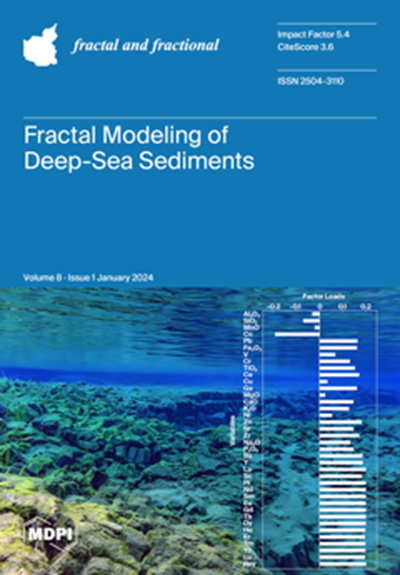Fractional Diffusion Equation under Singular and Non-Singular Kernel and Its Stability
IF 3.3
2区 数学
Q1 MATHEMATICS, INTERDISCIPLINARY APPLICATIONS
引用次数: 0
Abstract
The fractional reaction–diffusion equation has been used in many real-world applications in fields such as physics, biology, and chemistry. Motivated by the huge application of fractional reaction–diffusion, we propose a numerical scheme to solve the fractional reaction–diffusion equation under different kernels. Our method can be particularly employed for singular and non-singular kernels, such as the Riemann–Liouville, Caputo, Fabrizio–Caputo, and Atangana–Baleanu operators. Moreover, we obtained general inequalities that guarantee that the stability condition depends explicitly on the kernel. As an implementation of the method, we numerically solved the diffusion equation under the power-law and exponential kernels. For the power-law kernel, we solved by considering fractional time, space, and both operators. In another example, we considered the exponential kernel acting on the time derivative and compared the numerical results with the analytical ones. Our results showed that the numerical procedure developed in this work can be employed to solve fractional differential equations considering different kernels.奇异核与非奇异核下的分数扩散方程及其稳定性
分数反应扩散方程已经在物理、生物和化学等领域的许多实际应用中得到了应用。由于分数阶反应扩散方程的广泛应用,我们提出了一种不同核数下分数阶反应扩散方程的数值解法。我们的方法特别适用于奇异核和非奇异核,如Riemann-Liouville、Caputo、Fabrizio-Caputo和Atangana-Baleanu算子。此外,我们还得到了保证稳定性条件显式依赖于核的一般不等式。作为该方法的实现,我们对幂律和指数核下的扩散方程进行了数值求解。对于幂律核,我们通过考虑分数时间、空间和两个算子来求解。在另一个例子中,我们考虑了作用于时间导数的指数核,并将数值结果与解析结果进行了比较。我们的结果表明,在这项工作中开发的数值程序可以用于解决考虑不同核的分数阶微分方程。
本文章由计算机程序翻译,如有差异,请以英文原文为准。
求助全文
约1分钟内获得全文
求助全文
来源期刊

Fractal and Fractional
MATHEMATICS, INTERDISCIPLINARY APPLICATIONS-
CiteScore
4.60
自引率
18.50%
发文量
632
审稿时长
11 weeks
期刊介绍:
Fractal and Fractional is an international, scientific, peer-reviewed, open access journal that focuses on the study of fractals and fractional calculus, as well as their applications across various fields of science and engineering. It is published monthly online by MDPI and offers a cutting-edge platform for research papers, reviews, and short notes in this specialized area. The journal, identified by ISSN 2504-3110, encourages scientists to submit their experimental and theoretical findings in great detail, with no limits on the length of manuscripts to ensure reproducibility. A key objective is to facilitate the publication of detailed research, including experimental procedures and calculations. "Fractal and Fractional" also stands out for its unique offerings: it warmly welcomes manuscripts related to research proposals and innovative ideas, and allows for the deposition of electronic files containing detailed calculations and experimental protocols as supplementary material.
 求助内容:
求助内容: 应助结果提醒方式:
应助结果提醒方式:


